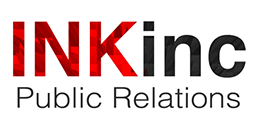I am often sent articles and blogs that take umbrage with pay-for-performance public relations. In most instances, they are written out of some sense of misguided indignation by those believing the PR profession should be accredited next to physicians and attorneys; a fear of weakening or even destroying the PR agency’s time-worn hourly compensation fee structure; or just a failure to take the time to learn the facts. Regardless, the result is a perpetuated ignorance.
One such example is a recent blog post by a firm calling itself “Press Friendly”. The firm bills itself as an ‘agent of change’ within the PR industry that has developed a kind of do-it-yourself software for media relations that eliminates the need for a traditional PR agency…particularly for embryonic start-ups.
If the blog had just stopped there, I would have said, “Great! Kudos to them!” There is always room for innovation in this century-old profession of getting the press to pay attention and cover our clients. But it didn’t. The author decided to lecture his audience (presumably start-up tech firms) against the evils of pay-for-performance compensation with four reasons “why pay-for-performance is a bad idea.” Really?
Let’s take each point on its own…
1. You’re paying for press coverage you can get on your own. Sorry, just doesn’t work that way.
In one of the most simplistic arguments I’ve read in a long time, the author claims the only reason PR firms land coverage for a client is because they only accept the ‘best’ clients…i.e., if your story is good enough you can get the coverage by simply getting it in front of the media and cut out the middle man. While this incredibly short sighted argument has little to do with compensation models, it does have a lot to do with demeaning and insulting the media itself…the other half of the media relations equation. It completely negates the importance of understanding the media’s needs, the experience of having worked within and with the press, the skill and yes, creativity, of finding the best, most appealing way of presenting your story so that it stands above the thousands of pitches directed their way. Can you ever get a story on your own? Yes…but very rarely.
2. It hurts your story. Never.
Let me be very clear here…Whether or not the media covers your story, is based on many factors but never based on your PR firm’s compensation model. The media, (including TechCrunch) bases their determination of coverage or even a small mention, on whether your story is newsworthy and compelling and of interest to their audience. It’s true that some media and members of the press carry a negative attitude towards PR and particularly the novices that sometimes practice it. But the negative attitude is aimed squarely at those that don’t take the time or show enough respect to either get it right or hire someone that does; not how or what a PR firm is paid.
3.The reach is limited. Unless infinite is limited, simply not true.
My firm has been practicing PR and media relations under a pay-for-performance model for over twenty years and has never “sent off one or two emails and then cashed a client’s check” in return for an exclusive. Never. Our clients have the full spectrum of the media…print, broadcast, online, trades, and general and business press…literally an infinite number that we carefully work with to ensure complete and continuing coverage for our clients. Working within an overall and long-range plan, it’s to our mutual benefit to gain as much coverage as possible over as long a period as possible.
4. You’re paying for someone else to build their relationship with the press. No…their relationships are to your benefit.
If, for a minute, I could sidestep the silly and insulting author’s assertion that a pay-for-performance PR practitioner is “solely dependent on whatever favors the PR person can call in to get your story covered” and concentrate instead on why relationships are very important…but not the only factor in gaining media coverage. PR professionals, spend months and even years in developing and nurturing relationships with key media types not based on favors or exclusives, but on delivering solid newsworthy ideas and stories that meet the needs of that media resource. Over a period of time, a mutual trust is established that benefits both the media and the PR practitioner. The other important and underlying factor in gaining consistently good media coverage is having or developing over time solid “news instincts” to be able to identify a news hook that will aid those with whom you have a relationship…and with those you don’t, which frankly, will always be in the majority. It is unlikely that someone in the midst of a start-up situation will have the time to develop nor nurture these media relationships or instincts.
The blog ends with the author stating that “public relations is a journey, a process. It’s the telling of your story via the press. It’s called “earned media” for a reason. There are no short cuts.”
Couldn’t agree more…but alas, I wish the author had realized and read his last words first and saved us all some time.
